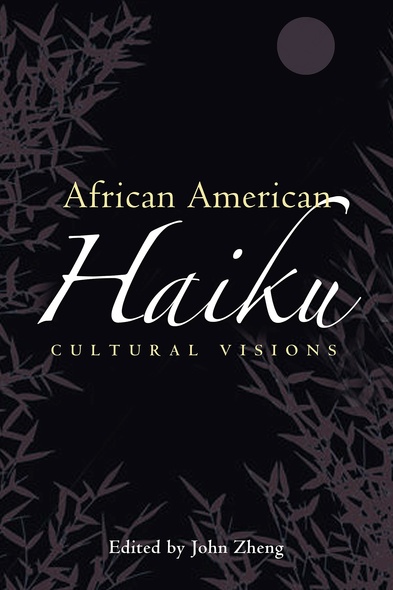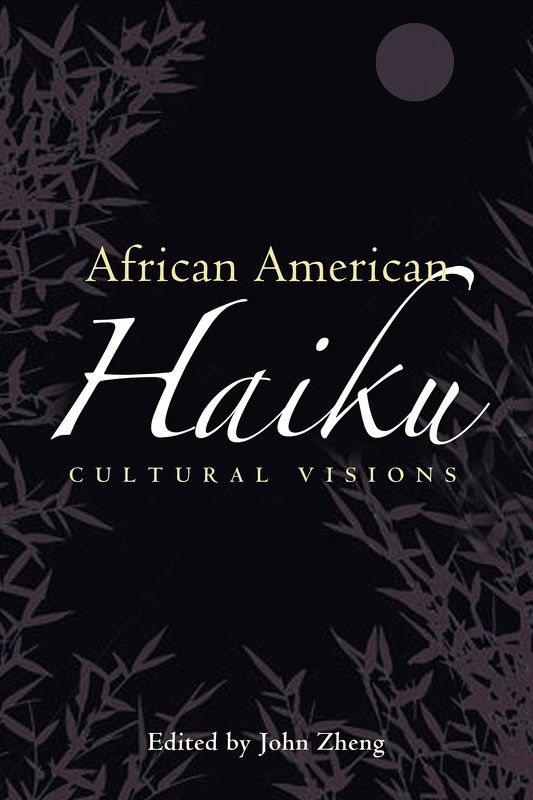Our shopping cart is currently down. To place an order, please contact our distributor, UTP Distribution, directly at utpbooks@utpress.utoronto.ca.
African American Haiku: Cultural Visions offers insights into African American poets’ innovations in the haiku form, shedding light on a neglected aspect of black poetry.
Notable scholars present new interpretations of well-known works. Essays trace the verse of five major African American haiku poets: Richard Wright, James Emanuel, Etheridge Knight, Sonia Sanchez, and Lenard D. Moore. Sachi Nakachi investigates the influence of Japanese aesthetics and Eastern philosophy on Richard Wright’s haiku showing Wright’s interest in the blues as poetry. Yoshinobu Hakutani analyzes the vision and affinity of jazz and haiku throughout James Emanuel’s Jazz from the Haiku King. And Claude Wilkinson digs into Etheridge Knight’s improvisation and adherence to tradition of haiku and African American vernacular form. The collection also explores how Sanchez creates a new American hybrid form of the modern haiku in English by blending haiku with her own principles of a black aesthetic. Toru Kiuchi shows how Lenard D. Moore expresses his experiences through haiku with his African American aesthetics and connections to black southern culture.
By discussing multiple writers from a variety of disciplines in a single volume, the essayists compare and contrast the work created by writers, poets, and musicians, and illuminate the variety of methods African American authors used when adapting this traditional Japanese form. The result is a volume that offers rich insight into African American aesthetics, the black arts movement, gender issues, blues and jazz, and trends in contemporary poetry.
With its attention to form and to African American voices, the book raises the bar for future critical studies.
African American Haikus: Cultural Visions is a seminal for future criticism regarding how Japanese formal aesthetics have been liberated by poets, how haiku is transformed in literary contact zones, and how diversity is constituted by the cosmopolitan practices of individual African American poets. The book is destined to have an impact on theoretically sophisticated directs in the study of modern and contemporary African American poetry.
John Zheng’s remarkable new book examines one of the most interesting and unexpected conjunctions in modern American literature—the adoption of the Japanese haiku form by African American writers. Half a refuge from racial politics and half a subtle form of cultural rebellion, the African American haiku opened new creative possibilities for the ten writers Zheng explores in this deft and original volume. This book is a real addition to American literary scholarship.
The essays collected in African American Haiku: Cultural Visions expand and deepen our understanding of black poetic tradition from the beginning of the twentieth century to the present. They are exemplary models of how discourses regarding poets and genres ought to be constructed. Just as he did in The Other World of Richard Wright, John Zheng provides a concise and scholarly frame for inquiry about how African American poets have studied, embraced, and made innovations in an ancient Japanese genre. His introduction, an invaluable literary historical guide, makes a persuasive argument regarding haiku, African American modernity, and cross-cultural poetics. African American Haiku begins appropriately with considerations of Wright’s pioneering experiments with haiku and moves into critical analyses of how James Emanuel, Etheridge Knight, Sonia Sanchez, and Lenard D. Moore have made the formal and aesthetic innovations which enable representation of their diverse cultural visions. A discriminating treatment of African American haiku, the book is especially useful in illuminating how the technical constraints of Japanese formal aesthetics are liberated by the sensibilities African American poets exploit in representing their cultural visions. This book is seminal for future inquiries about the transformation of haiku in literary contact zones and about how diversity is constituted by the cosmopolitan practices of individual African American poets. This book will have a strong and necessary impact on new, theoretically sophisticated directions in the study of modern and contemporary African American poetry.
John Zheng is professor of English at Mississippi Valley State University and editor of The Other World of Richard Wright: Perspectives on His Haiku; Conversations with Jerry W. Ward Jr.; Conversations with Dana Gioia;and Conversations with Sterling Plumpp; and coeditor of Conversations with Gish Jen,all published by University Press of Mississippi.





